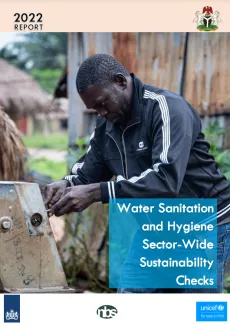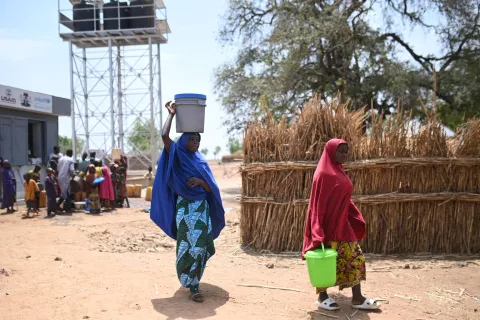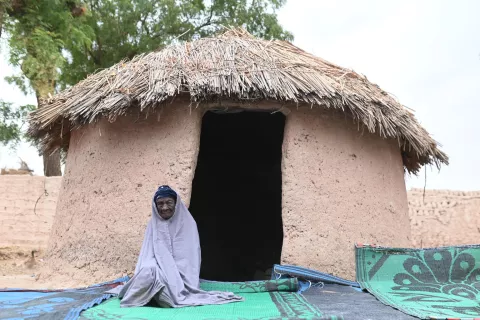Water Sanitation and Hygiene Sector-Wide Sustainability Checks
The 2022 Sector Wide Sustainability Check (SWSC) in Nigeria is the first of its kind. It was developed by the Federal Ministry of Water Resource (FMWR) and the National Bureau of Statistics (NBS) with technical support from UNICEF and partners.

Highlights
Sustainability of water, sanitation, and hygiene systems is critical for ensuring that communities have access to safe drinking water, adequate sanitation, and hygiene services. The 2022 Sector Wide Sustainability Check (SWSC) in Nigeria is the first of its kind. It was developed by the Federal Ministry of Water Resource (FMWR) and the National Bureau of Statistics (NBS) with technical support from UNICEF and partners.
The SWSC aims to identify and analyse the factors influencing the sustainability of WASH facilities and services in Nigeria, and to recommend key strategies for improvement. The SWSC measured 47 indicators covering the principal areas of functionality, accessibility, quality and design, financial sustainability, and regulation. These indicators were measured from the lens of the users, the service providers, service authority and sector governance in the country.
A summary of findings, using a composite index, showed that only 46% of WASH services provided in Nigeria are sustainable when measured against the above indicators at the household, schools and healthcare facility level. More significantly, the major factors affecting this poor level of sustainability are frequent breakdown of water facilities, poor water quality at source and point of consumption, weak capacity of service providers to provide services at scale, weak tariff system to support operation and maintenance and a poor regulatory framework for private sector engagement.
With this sustainability check report, UNICEF and partners have supported the government of Nigeria to take the first step in improving sustainability of WASH services in the sector by undertaking a diagnosis of the key sustainability issues. Going forward, stakeholders in the sector will take the results of the sustainability check to inform the development of a response plan to address the issues identified and sign a sustainability compact for the implementation of the recommendations.





